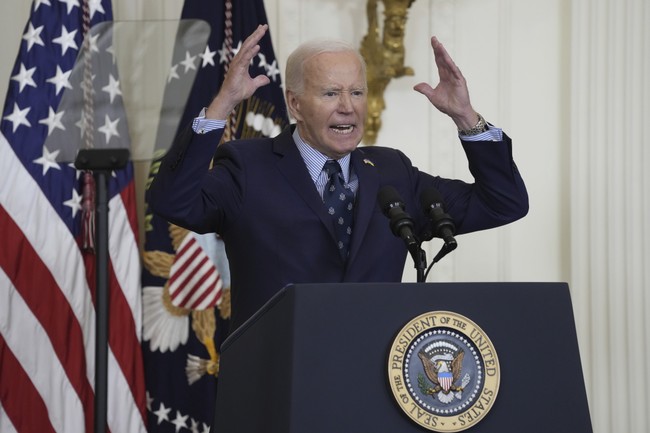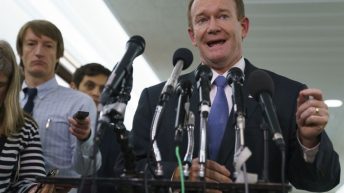The latest release of internal documents from the House Oversight Committee adds fresh evidence to claims the Biden-era Justice Department treated political opponents like targets, not citizens. The Arctic Frost materials show subpoenas for phone records, travel bills for interviews, and a sweeping list of people the DOJ considered in its probe. Republicans say this looks like harassment and a politically driven fishing expedition, and the new memos raise hard questions about accountability and who was running things in the White House. Below is a clear summary of what the documents reveal and why it matters for the rule of law.
The newly released tranche centers on an investigation codenamed Arctic Frost and documents how DOJ resources were used across FBI field offices nationwide. Committee materials show the team sought $16,600 to support more than 40 interviews, a modest travel tab that nevertheless reflects a broad, coordinated effort spanning multiple jurisdictions. That coordination matters because routine law enforcement activity looks very different from a politically focused sweep targeting a particular party and its officials.
Republican lawmakers have pointed to specific subpoenas and record requests that include close aides and sitting members of Congress and the Senate. The list of individuals who were potentially targeted reads like a roll call of Republican operatives and former administration officials. When members of one party repeatedly find themselves subject to such inquiries, it raises the reasonable suspicion that these actions were less about neutral law enforcement and more about political advantage.
The Oversight Committee took to their official X account to .
-Arctic Frost investigators utilized FBI field offices from across the country to conduct its investigation.
-Arctic Frost investigators requested $16,600 to travel to conduct more than 40 interviews.
-45 individuals including, Steve Bannon, Scott Perry, Rudolph Giuliani, Jeffrey Clark, John Eastman, and Mark Meadows were potentially under investigation.
-Another 111 individuals including Peter Navarro, Dan Scavino, Jeff Rosen, and Ed Martin were also potentially under investigation.
Other Republicans subpoenaed : Ted Cruz (R-TX), Marsha Blackburn (R-TN), Ron Johnson (R-WI), Bill Hagerty (R-TN), Josh Hawley (R-MO), Cynthia Lummis (R-WY), Lindsey Graham (R-SC), Dan Sullivan (R-AK), and Tommy Tuberville (R-AL). The documents do not include a clear, public explanation for why these Senators’ records were sought, leaving a vacuum filled by inference and concern. When subpoenas are broad and unexplained, the public has a right to know whether investigators pursued legitimate leads or engaged in intrusive, partisan sweeps.
Senator Chuck Grassley (R-IA) weighed in with pointed criticism of Special Counsel Jack Smith and how Arctic Frost unfolded. Those comments reflect a larger GOP narrative: that career prosecutors and appointed officials sometimes act with their own agendas, and that political leadership did not sufficiently restrain or scrutinize their work. For Republicans, the issue is less about partisan scorekeeping than about whether checks and balances were respected when powerful agencies took aim at political rivals.
It’s one thing to investigate credible allegations of crime; it’s another to cast a wide net that scoops up phone logs of elected officials and close advisers without transparent justification. The line between legitimate national security work and partisan inquiry is thin, and documents suggesting the latter should prompt oversight and reform. If Americans can expect equal treatment under the law, agencies must show how their actions meet that standard when politics is involved.
The memos make clear the investigation relied on field office involvement, travel funding, and a sprawling list of potential subjects, which together look like a sustained, system-wide operation. That scale, combined with the absence of clear public explanations, fuels concerns about abuse of investigative tools. Republican oversight today frames these revelations as symptomatic of broader issues with how the executive branch wields federal law enforcement resources.
Beyond the immediate legal questions, there’s a governance issue: who called the shots? The documents reopen a debate about decision-making in the White House during the last administration. Republicans ask whether diminished capacity at the top led others to act without proper oversight, or if political operatives inside the government directed intrusive inquiries against opponents. That isn’t just political theater; it’s a query about institutional control and democratic norms.
The broader takeaway for conservatives is simple: when one side accuses the other of weaponizing government, the evidence often shows the accusing side has engaged in similar tactics. That pattern feeds public cynicism and erodes trust in institutions meant to be impartial. Law enforcement must be impartial, and when questions arise about impartiality, lawmakers have every right to demand answers and push for reforms that restore public confidence.
Readers will find the heavily redacted documents released by the Oversight Committee in the posted materials, and the public deserves full transparency on why specific records were sought and how decisions were made.





Add comment